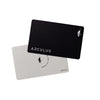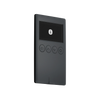Cryptocurrency has increasingly captivated the British public's interest over recent years, drawing in swathes of newcomers eager to explore the potential advantages and financial opportunities it presents.
This burgeoning popularity, coupled with the tantalizing prospect of substantial financial returns, has inevitably attracted a significant number of nefarious individuals. The year 2021 witnessed numerous high-profile instances of cryptocurrency theft, with several more occurrences already reported in 2022.
The risk of having one's account compromised underscores the imperative of safeguarding one's digital assets and being cognisant of the inherent risks associated with storing them on exchanges or online platforms more broadly.
In this piece, we shall explore the mechanisms through which cryptocurrencies are purloined and offer guidance on how to avert falling victim to such thefts.
Recent Episodes of Cryptocurrency Theft
One of the vexing challenges with data or security breaches is their often clandestine nature, with users typically only becoming aware of unusual account activities post facto. By this juncture, exchanges or platforms may have already facilitated illicit transactions, resulting in irrevocable loss of assets.
To illustrate the gravity of cryptocurrency theft, let us consider the final month of 2021. December alone witnessed four significant security breaches.
The case of BadgerDAO is particularly noteworthy, initiated by multiple reports of "unauthorized withdrawals" by users, involving roughly 2100 Bitcoins (valued at approximately $19 million) and about 150 Ethereum (worth around $680,000). The attack targeted BadgerDAO's front-end network, with a malicious script leading to the disappearance of funds.
On the 6th of December, BitMart's network was compromised, with hackers absconding with an estimated $150-200 million. Most victims were ordinary individuals hoping to secure their futures through investment, only to be left destitute. Notably, this incident involved BitMart, a platform renowned for its security and reliability.
Merely days later, on the 12th of December, hackers pilfered over $135 million in Ethereum from VulcanForged, a blockchain gaming enterprise, affecting 96 users. The attackers accessed the private keys of nearly a hundred users, exploiting this to their advantage.
Simultaneously, AscendEX fell victim to an attack, albeit with slightly lesser losses estimated at $77 million.
Such incidents underline the stark reality that stolen cryptocurrencies do not vanish; rather, once an account is breached, the assets are swiftly transferred to other accounts, rendering recovery nearly impossible.
Using Crypto Wallets
The analogy of storing cryptocurrency in a wallet akin to keeping cash in a traditional wallet is apt, providing a secure environment accessible only to the rightful owner. Nonetheless, crypto wallets, particularly "hot wallets", are susceptible to hacking.
Crypto wallets are broadly categorized into online (hot) wallets and hardware (cold) wallets, each with distinct security measures, such as two-factor authentication (2FA), designed to restrict access to authorized individuals only.
Which Type of Crypto Wallet Is Most Secure?
While storing cryptocurrency on the purchasing exchange is convenient, it places your assets at the mercy of the exchange's security protocols, essentially on an "IOU" basis.
Whether your portfolio is modest or extensive, any loss is painful. This brings us to the discussion of alternative storage options, such as hot wallets and cold wallets.
Hot Wallets
Hot wallets offer digital storage accessible via various devices. Many services provide hot wallets for free, representing a slightly more secure alternative to direct storage on purchasing platforms. However, their constant internet connectivity renders them vulnerable to security breaches.
Custodial vs Non-Custodial Wallets
The distinction between custodial and non-custodial wallets revolves around who holds responsibility for the wallet's security. Custodial wallets involve a third party, typically an exchange, holding the private keys, while non-custodial wallets place full responsibility for security on the wallet's owner.
Hardware Wallets
Cold wallet, or hardware wallet, provides a physical means of storing cryptocurrencies, offering reassurance through physical control over one's digital assets, insulated from online threats.
Advantages of Hardware Wallets
For those contemplating the investment in a cold wallet, consider its immunity to software attacks, the personalized encrypted pin or seed phrase for enhanced security, and the exclusive control over the private key and transaction verification. It’s the safest way to secure your crypto assets, get yours now!
Protecting Your Crypto from Theft
The paramount importance of securing your private keys cannot be overstressed. The failure to safeguard these keys can lead to significant financial loss, with many exchanges unable to compensate for thefts attributable to user negligence.
Opting for a hardware wallet provides a more secure alternative to exchange storage, with encrypted private keys and robust security software layers.
As interest in the cryptocurrency market grows, it is crucial to take every precaution to protect your assets and ensure their safe storage.




















































